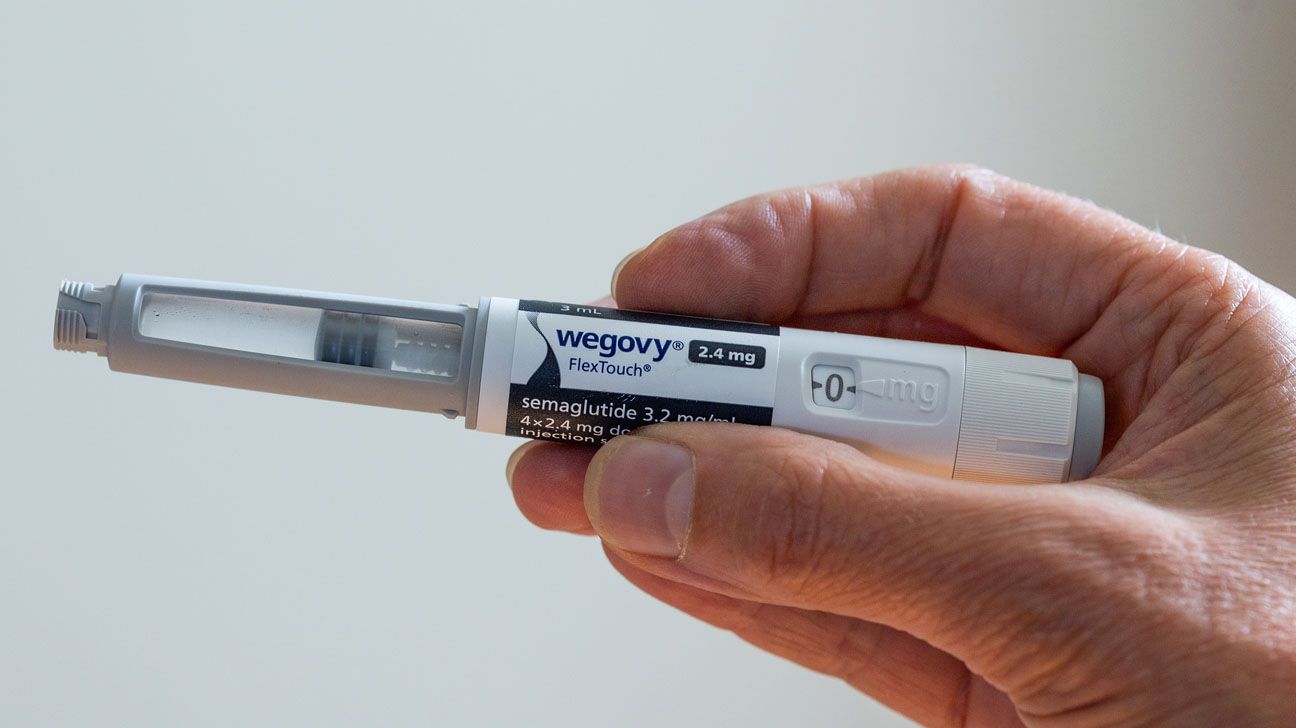
Wegovy Shows Promise in Treating Liver Inflammation and Fibrosis: New Study Results

New research suggests Wegovy (semaglutide) could be a valuable tool in combating metabolic dysfunction-associated steatohepatitis (MASH), a severe form of liver disease. The study revealed significant improvements in liver inflammation and fibrosis among participants using Wegovy. Let's dive into these promising findings and what they mean for individuals at risk.
Wegovy Reduces Liver Inflammation Significantly
- A major clinical trial demonstrated Wegovy's effectiveness in resolving liver inflammation.
- Nearly two-thirds of participants treated with Wegovy experienced resolution of liver inflammation.
- This rate was double that of the placebo group, highlighting the drug's potential.
What is MASH and Why Is Treatment Important?
Metabolic dysfunction-associated steatohepatitis (MASH) is an advanced stage of metabolic dysfunction-associated steatotic liver disease (MASLD), previously known as nonalcoholic fatty liver disease (NAFLD). It involves fat buildup in the liver, leading to inflammation, liver cell injury, and fibrosis, potentially progressing to liver cancer or early death. The urgent need for diverse treatments arises from the limited options currently available, with Rezdiffra being the only FDA-approved medication for moderate to severe liver fibrosis due to MASH.
Wegovy Demonstrates Potential to Reduce Liver Fibrosis
- The study indicated Wegovy's impact on reducing liver fibrosis, a critical aspect of MASH.
- 37% of Wegovy users experienced a reduction in liver fibrosis without worsening MASH.
- In comparison, only 22% of the placebo group saw similar improvements.
Combined Benefits: Inflammation Resolution and Fibrosis Reduction
While achieving both outcomes simultaneously is challenging, a subset of participants experienced the combined benefits of inflammation resolution and fibrosis reduction. Almost one-third of Wegovy users experienced both improvements, whereas only 16% of those on placebo did. This highlights the complexity, where inflammation and fibrosis are distinct disease processes, making it difficult for a drug to improve both simultaneously.
Wegovy's Safety Profile: What You Need to Know
- The clinical trial highlighted Wegovy's favorable safety profile.
- Serious adverse events occurred at the same rate in the Wegovy and placebo groups (13%).
- Most common side effects were gastrointestinal, including nausea, diarrhea, constipation, and vomiting.
Additional Benefits: Weight Loss and Cardiovascular Improvements
Beyond liver health, the trial revealed secondary benefits for Wegovy users. Participants experienced:
- Significant weight loss: An average of 10% body weight reduction compared to 2% in the placebo group.
- Improvements in cardiovascular health: Including lower blood pressure, triglyceride levels, and cholesterol.
- Better blood sugar regulation: Evidenced by improvements in hemoglobin A1C levels.
Expert Opinions on Wegovy's Potential
Experts are optimistic about Wegovy's potential as a treatment option for MASH.
Dr. Sun Kim from Stanford Medicine emphasized the urgent need for more treatments, especially for patients with diabetes who are at high risk for MASH and advanced fibrosis. Dr. Beverly Tchang described semaglutide as the "Swiss army knife" of medicine, offering a holistic approach to liver disease and associated cardiometabolic illnesses.
The Future of MASH Treatment with Wegovy
These findings suggest Wegovy could become a valuable addition to MASH treatment strategies. Its ability to address both liver inflammation and fibrosis, along with its favorable safety profile and additional health benefits, makes it a promising option for individuals with this serious liver condition.








